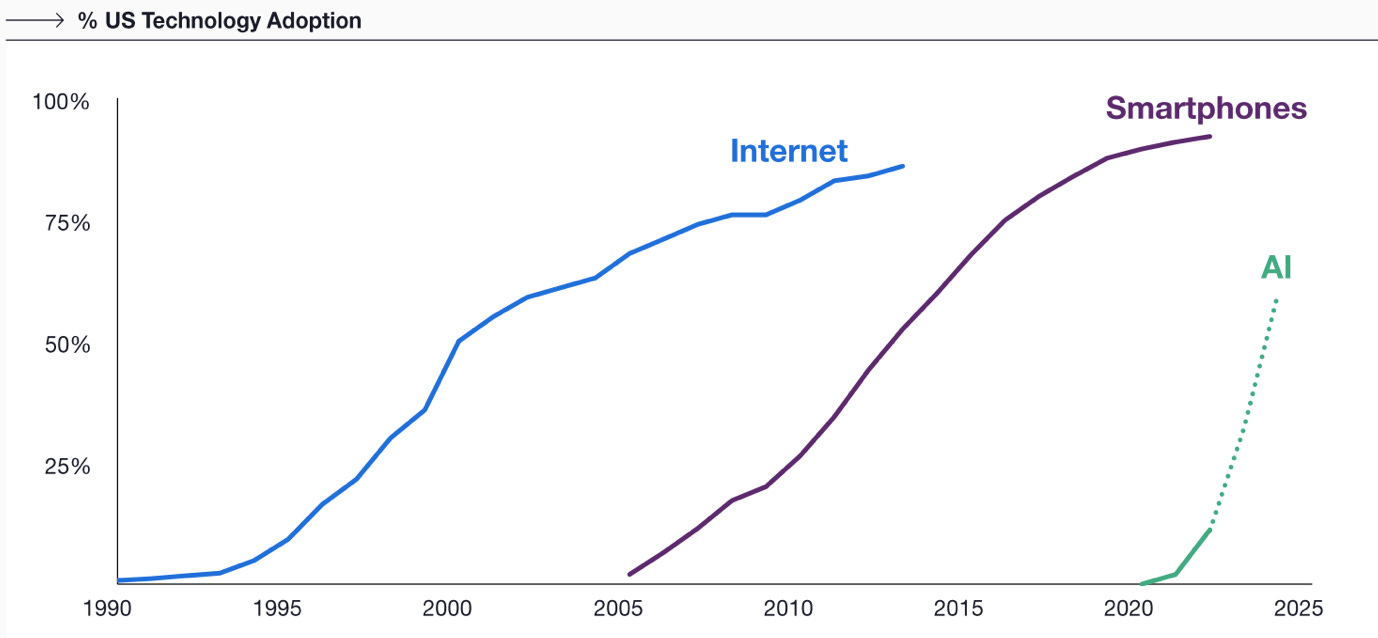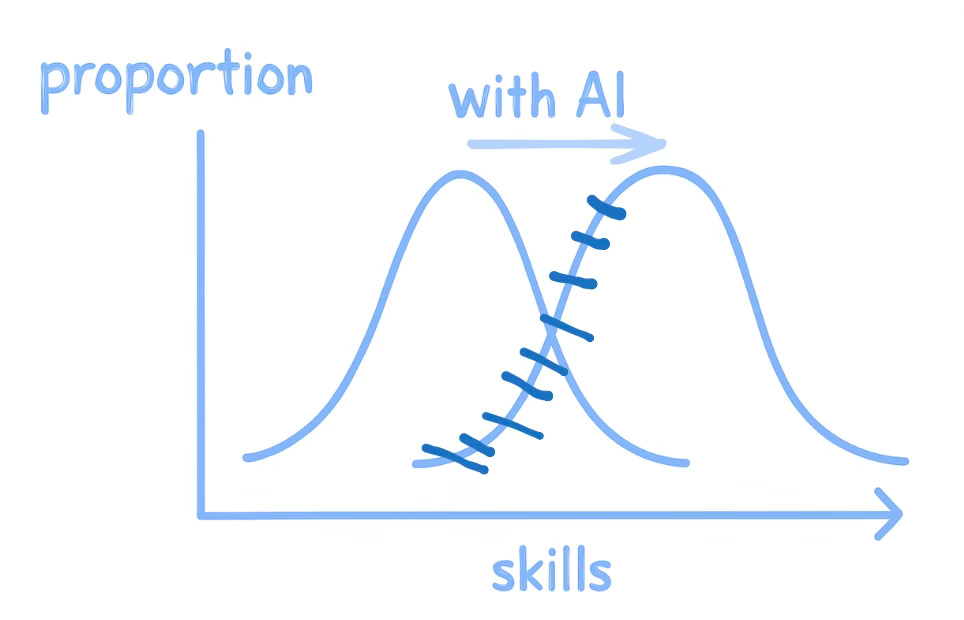The question that shocked me at my HBS reunion and how it exposed the AI divide reshaping everything
A Harvard Business School alumnus raised his hand and asked the entire classroom "What is AI?" last weekend.
I stared as Professor Karim Lakhani wrote this question on the blackboard at the start of our "AI Beyond Disruption" session with Brad Gerstner from Altimeter Capital.
This wasn't some random person off the street. This was an HBS alumnus, probably attending his 25th reunion, asking what I assumed was common knowledge in 2025.
I was shocked. Then I remembered I live in a bubble.
Living in San Francisco, I forget how divided our world has become. The Bay Area treats AI like oxygen. Everywhere I go, people talk about AI. But step outside this bubble, and you find intelligent, successful people who are just now trying to understand the basics.
That gap isn't just interesting. It's terrifying for anyone on the wrong side of it.
Walking out of that session, I couldn't shake how much this divide will shape the next decade. Here's what hit me:
Most people think AI adoption is linear. It's exponential
Most people think AI adoption follows a predictable curve. It doesn't.
Here's what exponential means: if something doubles every year, it goes from 1 to 2 to 4 to 8 to 16. By year 10, you're at over 1,000. Most people expect steady, predictable growth. AI doesn't work that way.
Twenty years ago, Harvard classrooms debated whether every company should become an "internet company." We're asking the same question about AI today, but with one crucial difference: the timeline has collapsed.

The internet took decades to reshape business. AI is doing it in years. In 4-5 years, we'll have agents managing many other agents. The transformation everyone thinks is coming? It's already here.
The cost of not adopting AI today is higher than missing the internet, mobile, or cloud computing. And most people don't even know the race has started.
Adding a chatbot isn't AI adoption. It’s theater
Brad Gerstner's Amazon analogy hit hard. Amazon didn't just add an online catalog to compete with Walmart. They rebuilt retail from scratch.
Barnes & Noble had an online presence too. But that was like today's companies adding a chatbot and calling themselves "AI-enabled." It's like slapping a “.com” on your business name in 1999 and thinking you'd mastered e-commerce.
Real AI adoption means questioning everything about how you work. It's asking: "If we started this company from scratch today with AI, what would it look like?"
Most companies are slapping AI features onto old systems. The winners are rebuilding their entire value proposition around AI capabilities.
But even companies that understand this often make a critical mistake...
Processes need rebuilding, not patching
Here's what many companies miss: optimizing one step with AI just shifts the bottleneck somewhere else.
When you supercharge marketing with AI, sales becomes the constraint. When sales gets AI-powered, suddenly fulfillment is the problem.
Take a consulting firm: AI can research and draft reports 10x faster. But if client meetings, proposal writing, and project management stay manual, you've just moved the bottleneck, not eliminated it.
This creates a domino effect. You can't just upgrade individual functions—you have to rethink the entire workflow. This means every role and handoff needs to be reconsidered.
Being a Harvard grad is no longer an advantage
The stats from our discussion were mind-blowing: the average person with AI access improves their performance by 40%. Entry-level work will be 5x to 10x better in the future.
AI is leveling the playing field in ways that make traditional credentials less relevant. Being an Ivy League grad means nothing if you're not using AI.
The bottom half of white-collar skills face elimination. If you're not using AI, you're falling behind. This is what I call the personal innovator's dilemma: disrupt yourself before someone else does.

Big Tech companies are already replacing labor operating expenses with GPU capital expenses. This isn't some future scenario we're planning for. It's happening while people are still asking "What is AI?"
The first step matters more than the perfect plan
The good news? You don't need to transform everything overnight. Whether you're advancing your career or running a business, start with one area this week.
Pick one tool or process and commit to testing it daily. Not next month. This week.
For individuals:
Use ChatGPT or Gemini for deep research. Think of them as smart interns who never sleep
Try Cursor or GitHub Copilot for coding, even if you’re not a developer
Watch YouTube tutorials on AI tools in your field
Turn to AI for brainstorming when you're stuck
For business leaders:
Audit your core business process and ask: "How would we design this from scratch with AI?"
Test AI tools for customer service, sales outreach, or marketing campaigns
Run a small pilot project using AI to solve a specific business problem
Map your company's workflow bottlenecks and identify which AI could address first
The Harvard alumnus who asked "What is AI?" had one advantage over everyone else in that room: he wasn't pretending to already know. He was ready to learn.
The divide I witnessed that day is growing wider every week. The question now is which side everyone lands on.
Which side will you choose?






Nice recap of our discussion!